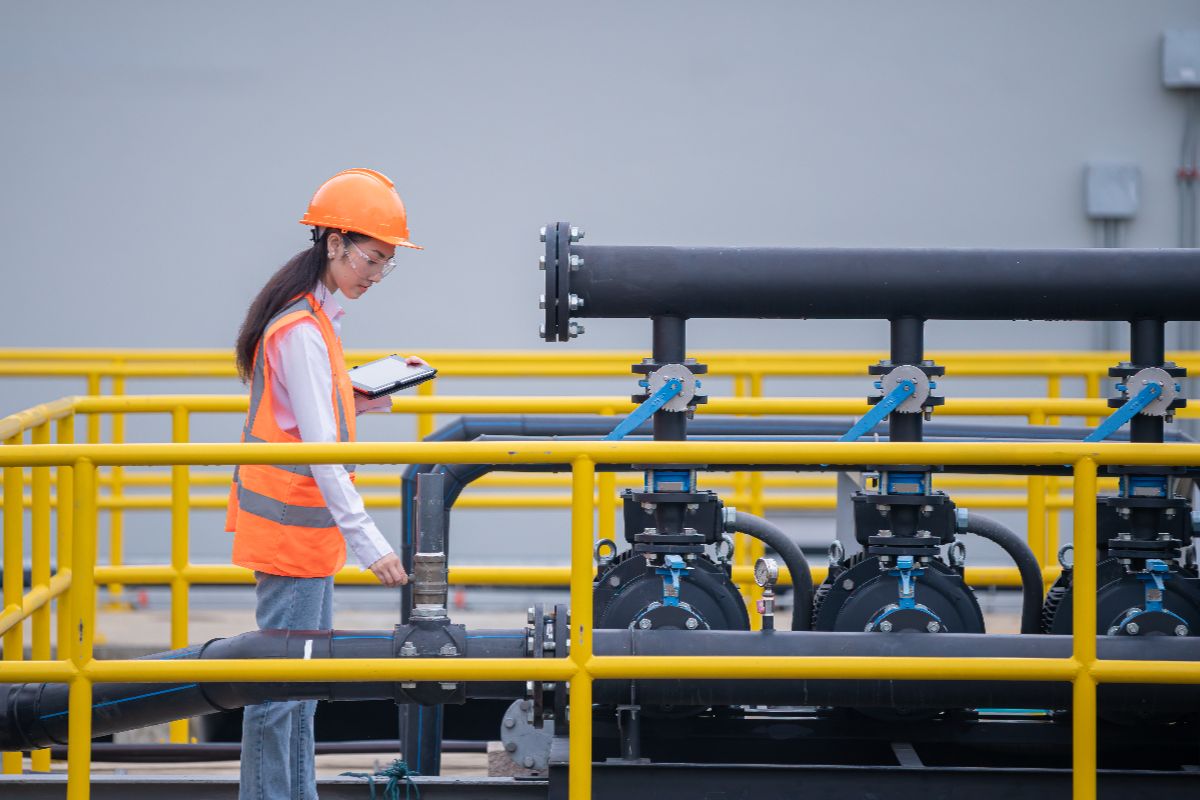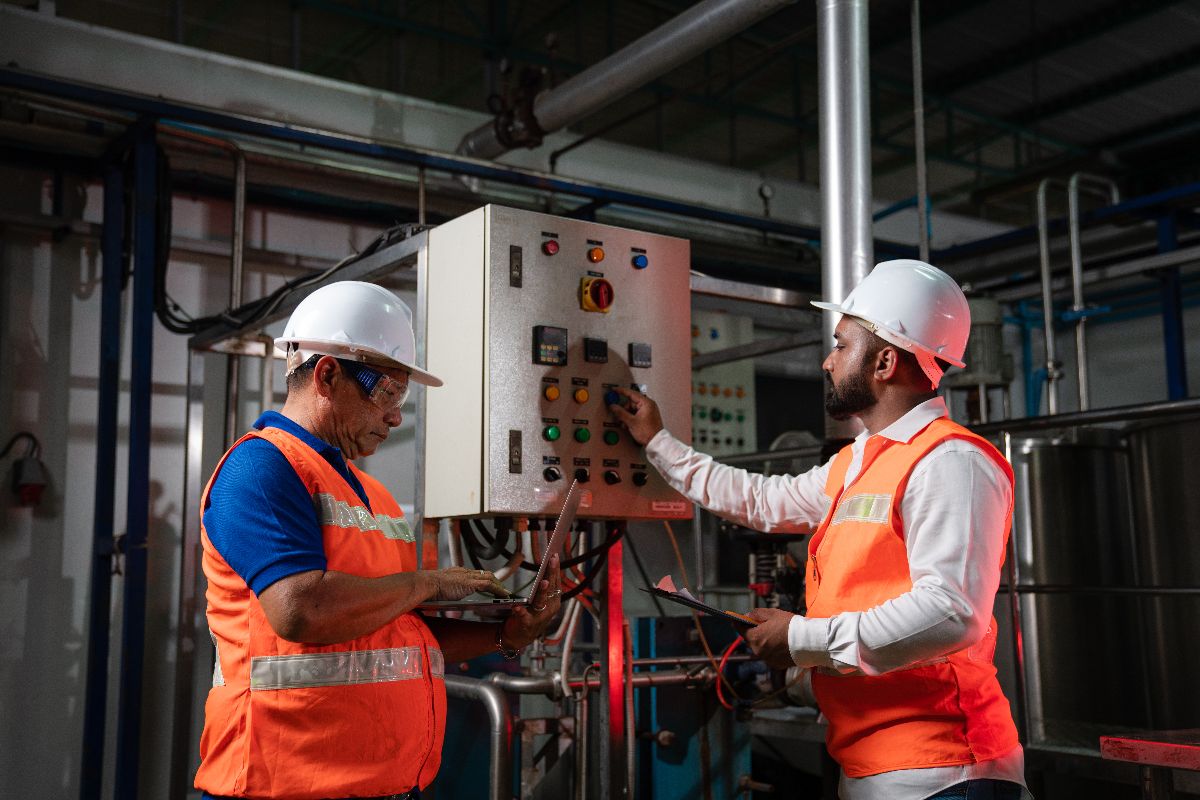How To Maintain Industrial Chillers
 November 29, 2024
November 29, 2024

How do you maintain industrial chillers?
- Inspect the chiller regularly
- Clean the condenser coils
- Monitor refrigerant levels
- Replace filters and components as needed
- Schedule professional maintenance
Overview
- Industrial chillers, essential for regulating manufacturing temperatures, come in air-cooled and water-cooled types.
- In the Philippines, Industrial PH partners with TopChiller to provide high-quality solutions.
- Regular maintenance, including inspections, refrigerant level monitoring, coil cleaning, and filter replacement, ensures efficient performance and extends equipment lifespan.
- Professional servicing helps prevent breakdowns, reduces energy costs, and improves overall system reliability.
Industrial chillers are critical cooling systems used to regulate temperatures in manufacturing processes. They come in two main types: air-cooled chillers, which use fans to dissipate heat, and water-cooled chillers, which rely on water to transfer heat away.
In the Philippines, Industrial PH stands as a leading supplier of industrial chillers, offering high-quality solutions in partnership with TopChiller, a trusted name in the global cooling industry.
In this article, we will explore how to maintain industrial chillers to ensure long-term efficiency, reduce operational costs, and prevent breakdowns.
Inspect the Chiller Regularly

Over time, components can wear out, leading to inefficiencies that affect production processes. Routine inspections help identify potential issues such as refrigerant leaks, abnormal noises, or temperature fluctuations.
By addressing these problems early, you can minimize downtime and ensure that their cooling systems operate efficiently, resulting in lower energy costs and prolonged equipment lifespan.
During inspections, check refrigerant levels, electrical connections, condenser and evaporator coils for buildup, and the condition of components like the compressor, pumps, and valves to ensure proper function.
Clean the Condenser Coils
When dirt, dust, and debris accumulate on the coils, they obstruct heat transfer, causing the chiller to work harder to maintain desired temperatures. This increased workload can lead to higher energy consumption and greater wear on the equipment, potentially resulting in costly breakdowns.
To determine if your condenser coils need cleaning, visually inspect them for visible dirt or grime buildup. If you notice a significant amount of debris or if the chiller struggles to maintain temperature settings, it’s time to take action.
Always turn off the power before cleaning for safety. Use a soft brush or vacuum to remove loose dirt, and apply a gentle HVAC cleaning solution for stubborn grime. Rinse the coils with water to remove residue and ensure proper airflow by checking for obstructions around the condenser unit.
Monitor Refrigerant Levels
Proper refrigerant levels are crucial for effective heat exchange; insufficient refrigerant can lead to decreased cooling performance, increased energy consumption, and potential damage to the compressor. When the optimal refrigerant levels are maintained, you enhance the overall efficiency of the chiller, reduce operational costs, and extend the lifespan of the equipment.
Monitor refrigerant levels by checking the pressure gauges for real-time readings and comparing them with manufacturer specifications. Look for oil around service ports or refrigerant lines as signs of leaks. If levels appear low, conduct a pressure test or consult a qualified technician for a thorough assessment.
Replace Filters and Components as Needed
Filters are essential for removing contaminants from the air and refrigerant, ensuring smooth system operation. Clogged or dirty filters restrict airflow, reducing cooling efficiency. Regular replacement of filters and worn components enhances chiller reliability, air quality, and consistent cooling, crucial for manufacturing processes. Neglecting maintenance can lead to system strain, breakdowns, and costly repairs.
Failing to replace worn components can also result in decreased efficiency, leading to higher energy bills and increased wear on the chiller itself. In some cases, the failure to maintain these components can lead to more severe issues, such as refrigerant leaks or compressor damage, which may result in extended downtime and disruptions in production.
Schedule Professional Maintenance

Trained technicians possess the expertise and tools necessary to conduct comprehensive inspections and identify potential issues that may not be visible during routine checks. They can assess critical components, such as the compressor, expansion valves, and refrigerant levels, ensuring they operate efficiently and safely. When you invest in professional maintenance, you can address minor problems before they escalate into major repairs.
Regular professional maintenance also contributes to energy efficiency and cost savings. A well-maintained chiller operates more efficiently, which can significantly lower energy consumption and utility costs. Many professionals also provide valuable insights and recommendations for optimizing your chiller system, further enhancing its performance.
Key Takeaway
Learn how to maintain industrial chillers for optimal performance, reduced downtime, and improved energy efficiency. Trust Industrial Ph for expert, customized service to keep your systems running smoothly. Contact us today for reliable, industry-leading support.




